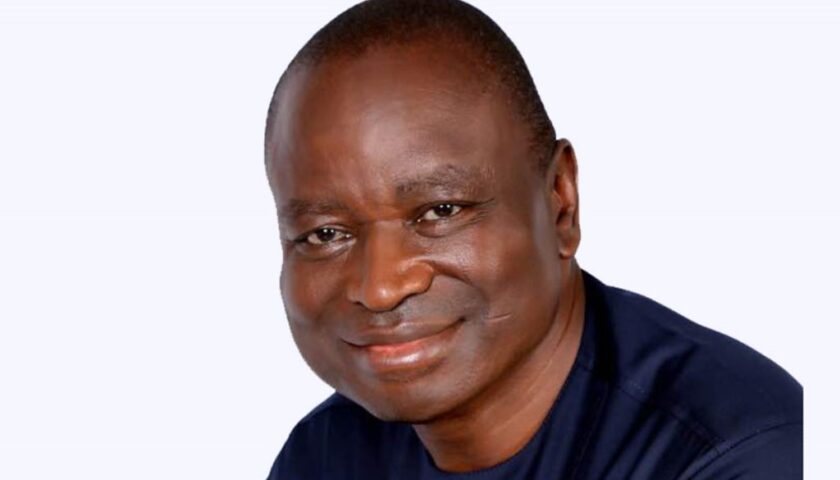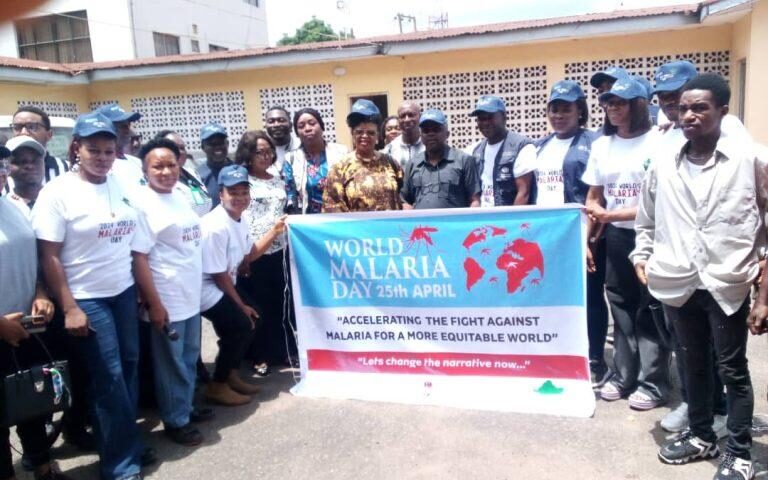By Law Mefor
A few days ago, Ndigbo came under fire from Professor Usman Yusuf, the former Executive Secretary of the National Health Insurance Scheme (NHIS), for their perceived lack of interest in the ongoing nationally spreading hunger protests and strikes. He said: “I honestly don’t know why the Southeast is quiet, uncharacteristically quiet. But the President needs to find out.”
Normally, one would disregard and deny additional visibility to a professor whose only contribution to national progress is Fulani supremacism for such an insulting and inflammatory tirade. However, it is a professor who has shaped the opinion of his divide and has led a significant federal agency. He has equally assumed the role of a sort of northern star and advocate. What he said about the Igbo ethnic group is not statesmanlike.
In response to a disaster that was long foretold, Ndigbo are silently protesting as should, perhaps more than those who have come to the streets, despite what Professor Usman Yusuf claims. A person cries till they are unable to make any more sound. That is what has happened to Ndigbo ever since Nigeria began to put its knee on the neck of Ndigbo, following the civil war between Nigeria and Biafra.
Professor Yusuf is aware that both government policies and elections have repercussions. A well-known political economist, Thomas R. Dye, has stated that “Public policy is whatever governments choose to do or not to do”. The disaster that soon befell Nigeria when Tinubu took office as President is a replay of past events, which began when Buhari took office and institutionalised sectionalism and nepotism with people like Professor Yusuf goading him. That was how mediocrity ended up being the guiding principle in Nigeria.
When Buhari ran Nigeria for a section of the country, Prof Usman Yusuf was in Nigeria and said nothing. Of course, He was appointed the executive secretary / chief executive officer of the National Health Insurance Scheme (NHIS) in August 2016 by Muhammadu Buhari, and it is un-African to talk while eating. So, don’t blame the cultured professor!
He understandably failed to perceive any issue when the Buhari administration permitted bandits to enter Nigeria in an attempt to settle an ethnic group that had become stranded. Today, the bandits and terrorists have seized control of the country’s forests. Free reign and encouragement were also provided to killer herdsmen so they could go on a murderous rampage, pillage, and displace communities. No word from people like Professor Yusuf.
Under their watch, Buhari brought the nation to its knees, amassing N77 trillion in debts—among them, an unprecedented N23 trillion in “ways and means” borrowed from the CBN without the National Assembly’s prior approval. The Buhari administration even pledged Nigeria’s future oil production as collateral for the careless loans it took, so the country will only receive a portion of the proceeds from oil sales today—a large portion of which is also going to private individuals’ pockets.
When Asiwaju Bola Ahmed Tinubu took office as Nigeria’s president, he discovered an empty treasury. But instead of pursuing those who had bankrupted the country, he chose to visit the ensuing sufferings of the hapless Nigerian masses.
Carelessly introducing currency flotation and fuel subsidy removal, Tinubu unleashed two major negative economic headwinds that have severely damaged Nigeria’s economy and inflicted unheard-of agony on the country’s already beleaguered populace.
The ensuing suffering against which the populace is revolting was foreseeable and avoidable. The twin anti-people economic policies will not in any way help the economy even in the long run. Naira lacks any solid foundation to go into the contest with market forces, with no significant exports or economic output to increase domestic production and shore up exports.
As said, terrorists and bandits have taken over the farmlands and driven farmers off their lands. Given the country’s low production and export levels, one may wonder what guarantees the naira flotation programme was based on. In the absence of such preconditions, those who advised the naira floatation policy are nothing but agents of the Bretton Woods Institutions – IMF and World Bank.
Since the country doesn’t progressively acquire foreign exchange through export to base such a policy, why is anybody astonished that the naira’s value is disappearing against the dollar? Given that there is no foundation for the policy that even sophisticated economies don’t try, why try it in Third World Nigeria?
Reducing fuel smuggling to nearby countries is one of the motivations behind the withdrawal of fuel subsidies. However, as the value of the naira rapidly declines, the currencies of most of the West African nations have surpassed the naira, making the cross-border smuggling of fuel and grains even more profitable today.
Therefore, the losses from the naira flotation, which has driven the value of the dollar to almost N2000 in just six months, also shattered the hope of stopping fuel smuggling from Nigeria contrary to the unfounded predictions.
Rewind to Professor Usman Yusuf’s complaint against his perceived Igbo people’s lack of interest in their country’s self-inflicted economic woes. The Igbo people are accustomed to hardship and privation. Igbo marginalisation is structural and constitutional, as Ohanaeze Ndigbo pointed out. Professor Usman Yusuf is aware that the Southeast is the only region in the country with only five states (the Northwest, to which the learned professor belongs, has seven states, but that’s good with him).
In addition, the Southeast has a shortfall of over 80 LGs in comparison to other zones. Yet, federal allocations, enrolment in educational institutions, appointment, and recruitments for federal government positions, and more are entirely based on the number of States and LGs.
Prof is aware that Ndigbo have endured suffering as a result of the country’s successive governments’ discriminatory policies, and that they have bemoaned for social justice and relief since the Nigeria-Biafra war, to no effect. During the war starvation and hunger were used as a war strategy against Biafrans and Ndigbo. When the genocidal war ostensibly ended, only a select few who could demonstrate that they had bank deposits in a certain bank before the war were offered a paltry twenty pounds.
The effect was that more than 90% of the surviving Igbo people had nothing to start over after the war if they had no proof of bank accounts before the war or had no documentation of the same. Since the war, Ndigbo have continued to feel like an endangered species in Nigeria and Professor Usman Yusuf knows.
The horrific experiences that Ndigbo had both during and after the war are what made the current hunger crisis seem insignificant. They have seen worse. It’s not like things are not rough in Igbo land. Perhaps much more so than in some other zones in the country, where suffering is believed to be rife. However, the truth is that since the war, the Igbo people can bear pains to any degree. That’s the point Professor Yusuf overlooked.
It is equally important to point out that palliative protests are not the solution. The professor ought to utilise his influence to get the Tinubu administration to undo the two misguided policies—the naira flotation and the removal of subsidies. The government needs to institute a strategy to do away with fuel subsidy that will last at least two years. Additionally, the professor ought to inform President Tinubu that the naira will not profitably float even in a decade without export and productivity. If not, the dollar will hit N5,000 within the Tinubu administration at the rate of the plunge.
Prominent figures such as Professor Yusuf ought to urge the government to abandon its delusional assertion that hardship protests are sponsored by the opposition who lost the election. Citizens are aware that to reinforce the false impression that there are no food crises in the land, the government will soon begin funding counter-protests, even in the Southeast. Tell the government, however, that the rain is only getting started. There won’t be somewhere to flee when it will pour, as it hasn’t started yet.
According to an Igbo proverb, a person who is unaware of the location of where the rain began to fall will never know where they sought cover. Nigeria needs to reject IMF economic prescriptions aimed at trapping the largest African economy in debt to maintain the continent’s status as a rentier economy and supplier of raw materials to the West. Rather than advocating for only palliative measures that aid in consumption rather than production, one hopes the professor will support the spread of this viewpoint as well before it is an eclipse.
Should these actions not be implemented expeditiously soon enough, Ndigbo will persist in their quiet form of protest—the “Sidon Look” model—which Professor Usman Yusuf is needlessly protesting. They are still watching the systematic destruction of their zone and livelihoods, typical of which is the crippling of the Ibeto Cement by the Buhari government, to pave the way for monopoly, which partly accounts for today’s hardships and protests.
- Dr. Law Mefor, an Abuja-based forensic and social psychologist, is a fellow of The Abuja School of Social and Political Thoughts. You can reach him via drlawmefor@gmail.com or X @Drlawsonmefor





